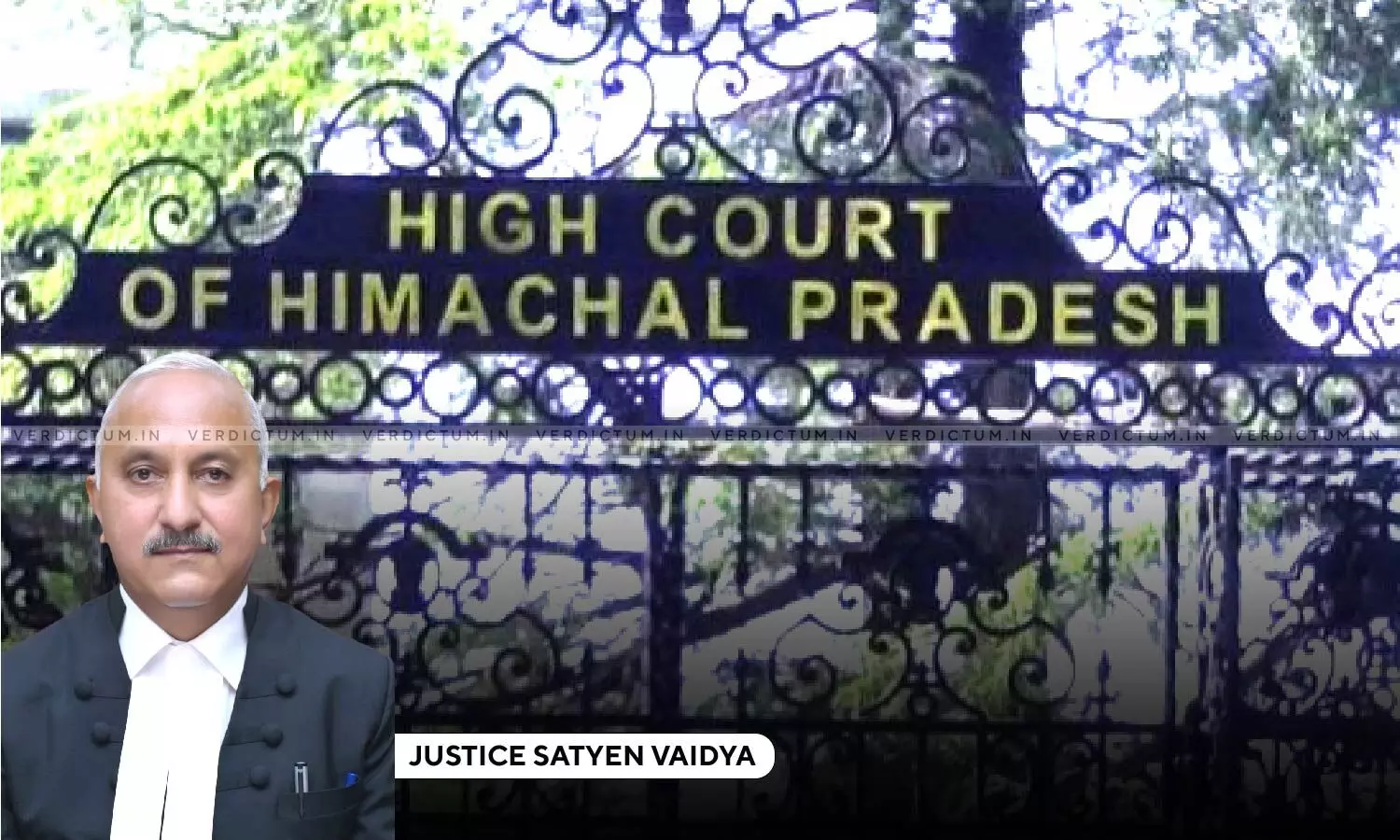
Offence U/s. 138 N.I. Act Is Compoundable Since Dispute Between Parties Are Of Purely Private Nature: HP HC
 |
|While exercising its inherent jurisdiction under Section 482 of the Cr.PC, the Himachal Pradesh High Court recently, allowed the compounding of offence under Section 138 of the Negotiable Instruments Act (N.I. Act, 1881) even though the conviction against the accused was upheld in appeal as well as in the revision.
While referring to the decision in case of Ramgopal vs. The State of Madhya Pradesh [(2021) SCC Online SC 834] in which was observed that cases of private nature can be allowed to be annulled even when their trial has been concluded and appeal stands dismissed, a Single Judge Bench of Justice Satyen Vaidya observed that, “On cheque having remained unpaid, petitioner/accused had faced prosecution and consequent conviction for offence under Section 138 of the N.I. Act. Even though the conviction of petitioner/accused remained undisturbed in appeal as well as in revision filed before this Court, still the respondent/complainant came forward and showed his magnanimity by agreeing to compound the offence on receipt of his dues”.
Advocate Mamta K. Bhatwan appeared for the Petitioner, whereas Advocate Vinod Sharma appeared for the Respondent.
In the background of the case, a complaint was filed by the Respondent against the Petitioner invoking Section 138 of the N.I. Act, 1881 and accused was convicted by the Trial Court with a sentence of one year and compensation of Rs. 1 lakh to be paid to the Respondent. Hence, present petition seeking compounding the offence under Section 138 in accordance with the compromise arrived between him and the Respondent.
After considering the submissions, the Bench found that the Respondent had admitted that he had received entire amount and is not interested in making the Petitioner to undergo sentence of imprisonment.
Finding that the dispute inter-se the parties was purely of private nature, the Bench stated that offence under Section 138 of the N.I. Act has been made compoundable under Section 147 of the Act.
“In appropriate cases, this Court in exercise of its inherent power under Section 482 of the Code can alter or review its judgment or final order in order to secure the ends of justice. Every civilized society and the legal/judicial system adopted by it longs for maintenance of peace and harmony between its subjects. Every step that furthers the above cause or seeks to maintain peace and harmony in the society can be accepted as a means to secure the ends of justice”, added the Bench.
Accordingly, the High Court allowed the offence under Section 138 of the N.I. Act that was subject matter of Criminal Case before Additional Chief Judicial Magistrate, to be compounded between the parties.
Resultantly, the High Court quashed the judgment of conviction and sentence order and acquitted the Petitioner/accused of all charges.
Cause Title: Diwan Chand v. Shamsher Singh
Click here to read / download judgment